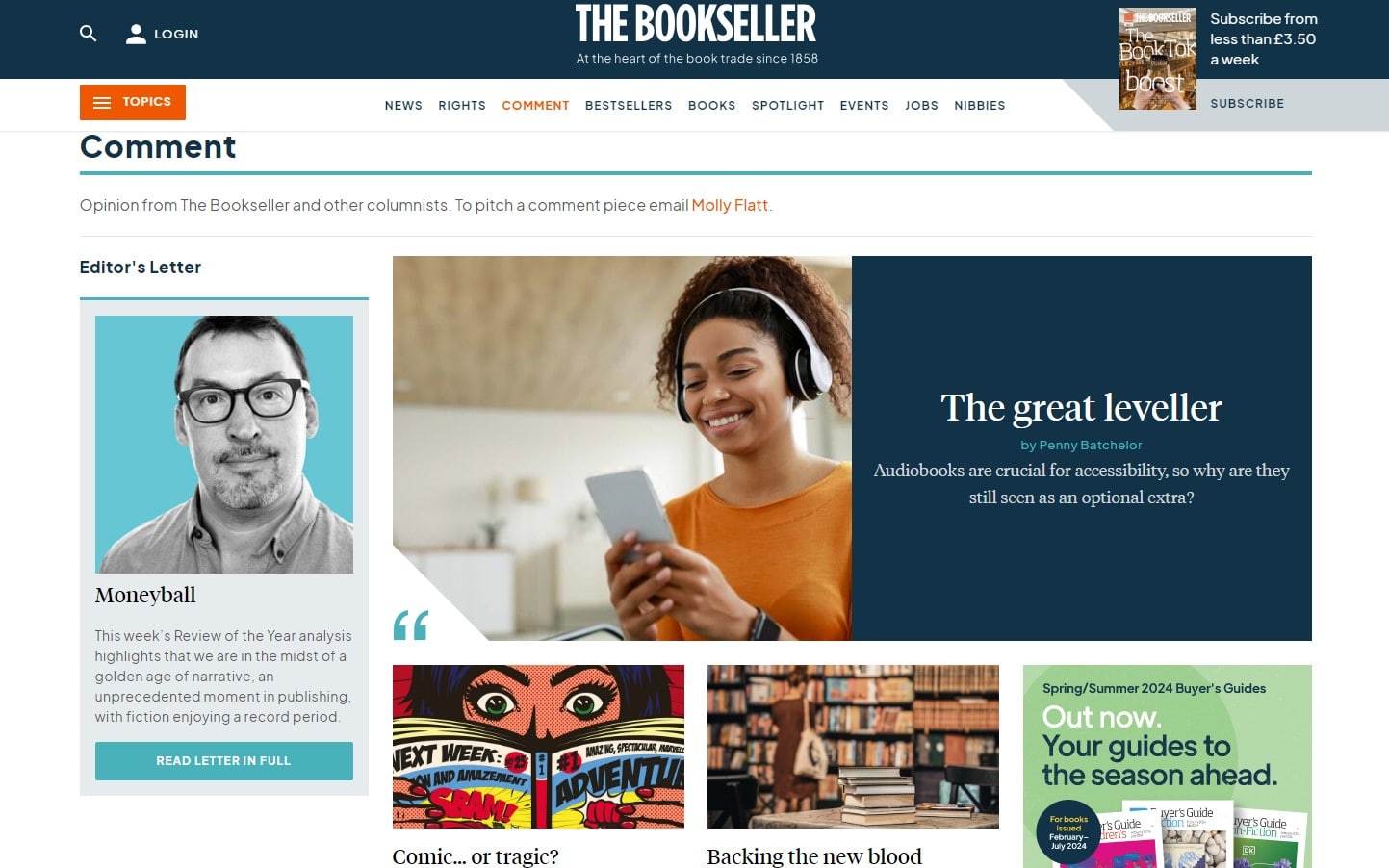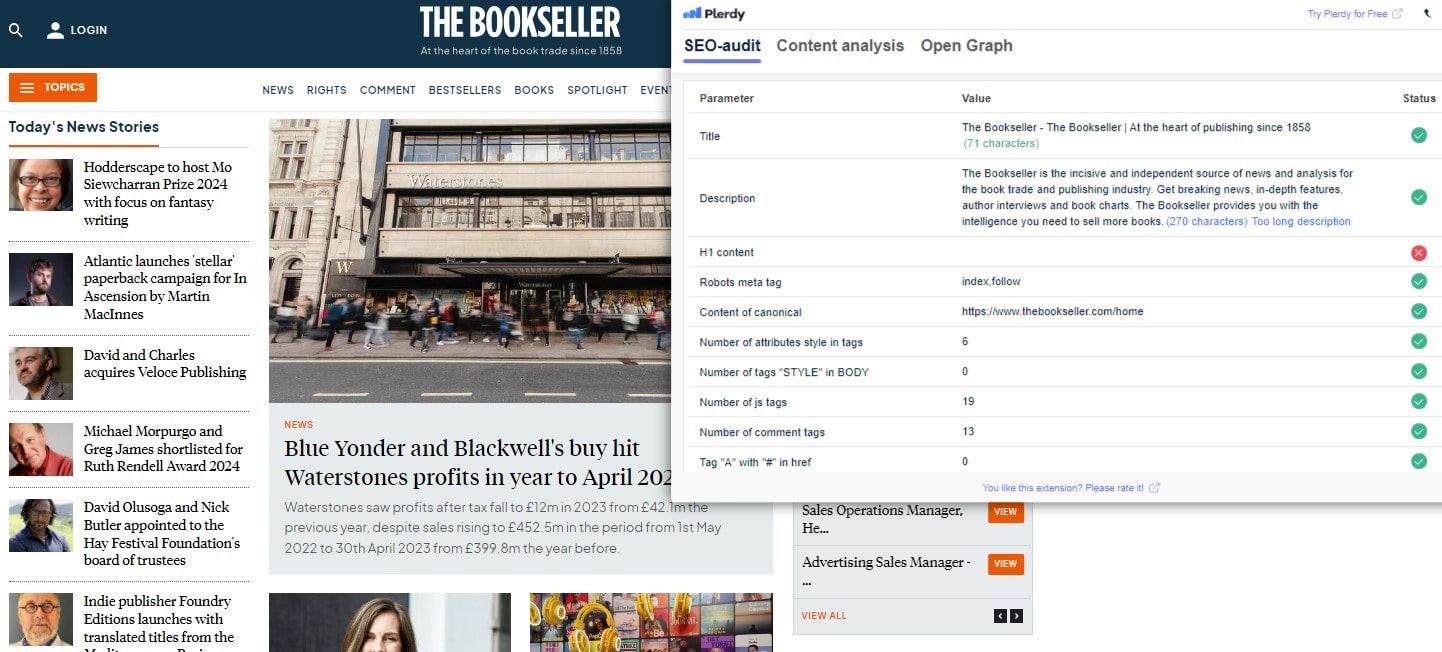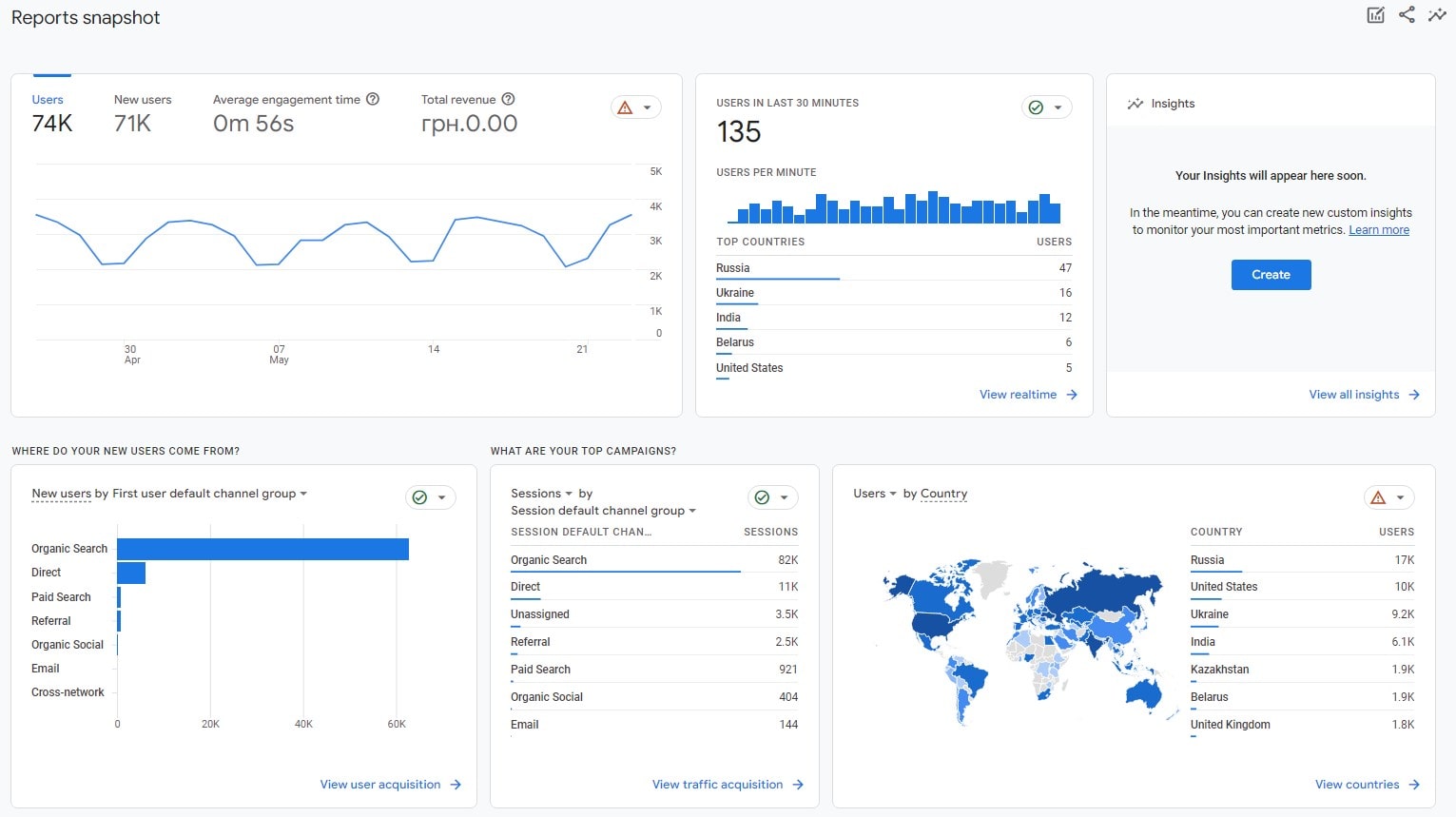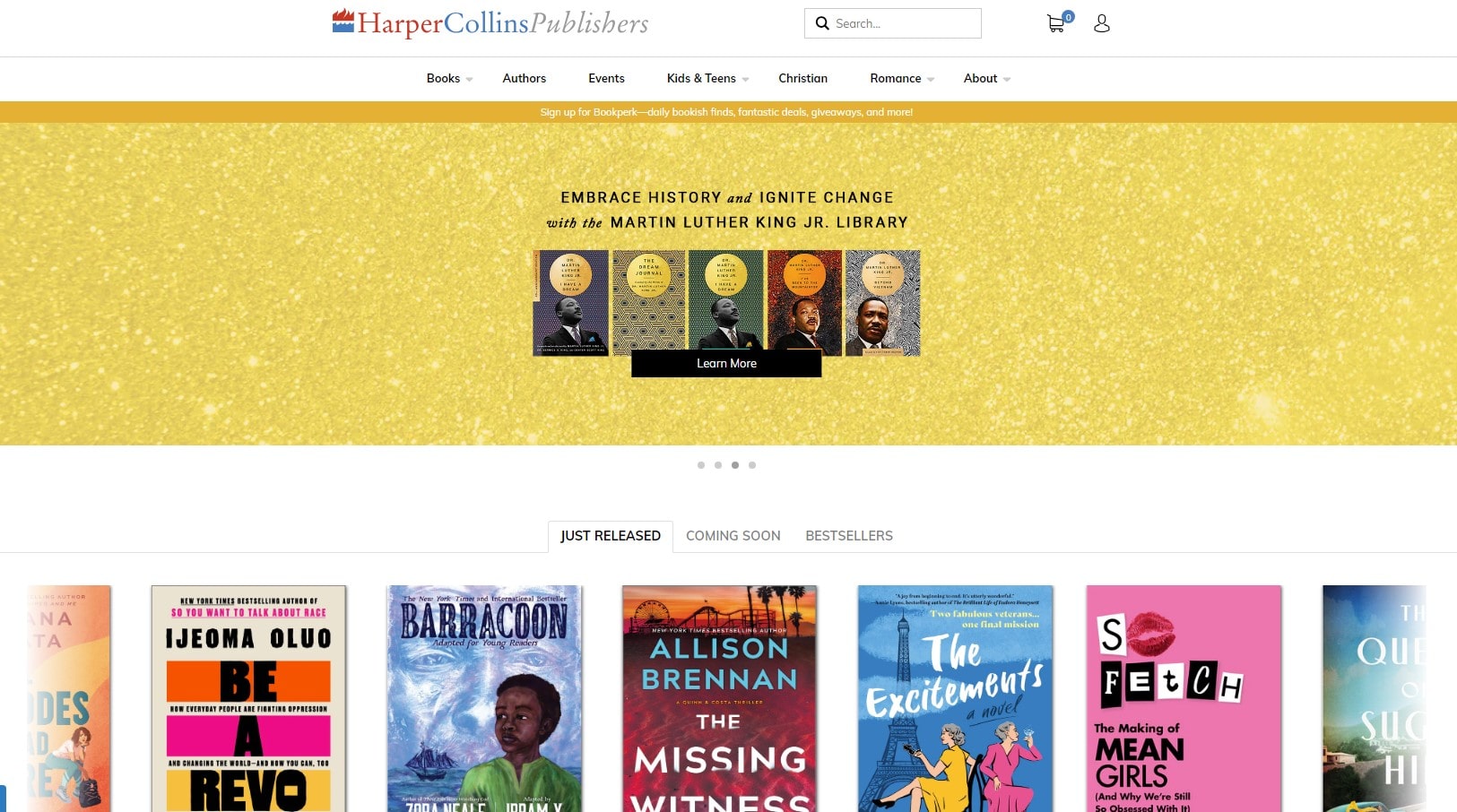Have you ever Googled a funny cat video only to find yourself in a news article about the economics of cat food? That’s SEO magic at work, specifically tailored for publishers. In the bustling digital era, where every publisher competes for a spot in the coveted search results, SEO isn’t just a tool; it’s a survival kit. Understanding and leveraging SEO strategies is crucial whether you’re a burgeoning blog or an established news portal. That’s where tools like Plerdy come in – transforming your SEO efforts from shots in the dark to targeted strikes. In this article, we dive deep into the world of SEO for publishers, unraveling strategies that boost your visibility and ensure your content resonates with your audience. Mastering publisher SEO might be your gateway to topping those search results.

Understanding Publisher SEO
Imagine entering the digital realm where your content doesn’t just exist; it thrives. That’s the power of Publisher SEO – transforming your articles from hidden gems to shining beacons on the search results page.
Publisher SEO: The What and Why
- Essence of Publisher SEO:
- Tailored for content creators, focusing on enhancing online visibility.
- Involves fine-tuning articles, using strategic keywords, and improving structure for search indexing.
- Aims to make your content a top hit for relevant searches.
- Why It’s Indispensable:
- Traffic Driver: High rankings in search results lead to more visibility and clicks.
- Relevance and Authority: SEO practices boost your content’s credibility and trustworthiness.
- Monetization Boost: Higher traffic and credibility attract better advertising opportunities.
- Engagement and Growth: Draws in the right audience, fostering loyalty and regular readership.
- Adaptability: Continuously evolving to keep up with search engine algorithms and trends.
For instance, consider BrightEdge’s research showing that organic searches account for over half of website traffic. This statistic underscores the unmatched potential of publisher SEO in steering relevant traffic to your site.
Embracing Publisher SEO is not just a strategy; it’s an essential component of your digital presence. In a world where content is king, ensuring your articles reign supreme on search engine result pages is paramount. It’s a continuous journey that rewards with increased visibility, credibility, and growth opportunities. Remember, in the fast-paced digital landscape, staying ahead with SEO is the key to ensuring your content continues to engage and captivate your audience.
Strategies for Maximizing Publisher SEO

It would help to implement certain strategies to harness Publisher SEO’s power effectively. These are not just about attracting more eyes to your content but about making sure those eyes belong to the right audience. Here’s how you can achieve this:
- Keyword Optimization:
- Research and identify keywords that resonate with your audience.
- Integrate these keywords naturally into titles, headers, and body content.
- Use long-tail keywords to target niche topics and attract a more specific audience.
- Content Structuring:
- Organize articles with clear, logical headings and subheadings.
- Employ bullet points and lists for better readability and engagement.
- Ensure each piece provides value, answering questions or offering insights.
- Technical SEO:
- Optimize website speed; a faster site retains more visitors.
- Ensure mobile-friendliness; a significant portion of users access content via mobile devices.
- Use clean, structured URLs and create an XML sitemap for easier crawling by search engines.
- Engaging and Evergreen Content:
- Blend trending topics with evergreen content for a balance of immediate and long-term traffic.
- Create content that sparks engagement, encouraging shares and comments.
- To stay current, update previous articles.
- Backlink Strategy:
- Aim for high-quality backlinks from reputable sources to boost your site’s authority.
- Collaborate with other publishers or industry experts for guest posts and joint ventures.
- Regularly audit your backlink profile to weed out any harmful links.
- Analytics and Adaptation:
- Regularly review your SEO performance using tools like Google Analytics.
- Be ready to adapt your strategies in response to new search engine algorithm updates.
- Experiment with SEO tactics to see what works best for your unique content and audience.
Mastering Publisher SEO is about creating a symphony where each element, from keywords to backlinks, plays its part harmoniously. The ultimate goal is to develop engaging, high-ranking content. Remember that SEO is about learning, adapting, and growing with the digital landscape. With these strategies in place, you’re well on your way to transforming your content into a magnet for search engines and readers alike.
Key Challenges in Publisher SEO

Navigating the world of Publisher SEO is like solving a complex puzzle with pieces constantly shifting. It’s a dynamic landscape with challenges that can make or break your content’s visibility. A solid SEO strategy starts with understanding these challenges.
Content Volume and Management
In digital publishing, content is produced at an unprecedented rate. Managing this volume presents a significant challenge. With new stories and updates emerging every hour, staying on top of SEO can seem like an endless battle. The key is to:
- Prioritize content: Focus on high-value topics and evergreen content.
- Streamline processes: Utilize content management systems and SEO tools to stay organized.
- Consistently update: Regularly revisit and refresh older content to keep it relevant.
Technical Aspects and Page Speed
Technical SEO is a critical yet often overlooked aspect of a publisher’s SEO strategy. A site’s technical health directly impacts its search rankings. Issues like slow page load times can deter readers, no matter how compelling the content is. To address this:
- Optimize for speed: Use tools like Google PageSpeed Insights to identify and fix speed issues.
- Mobile-friendly design: Make sure your site is mobile-friendly.
- Regular audits: Conduct technical SEO audits to identify and rectify site issues.
Content Optimization Techniques
Content that follows SEO-recommended practices is tricky. It’s not just about using keywords; it’s about crafting content that’s both informative and search engine-friendly. This includes:
- SEO-friendly headlines: Create compelling, keyword-rich titles.
- Quality over quantity: Focus on producing well-researched, valuable content.
- User engagement: Encourage interactions through comments, shares, and feedback.
Leveraging Structured Data and AMP
Structured data and Accelerated Mobile Pages (AMP) are becoming increasingly important in SEO. They enhance your content’s visibility and user experience on mobile devices. Implementation requires:
- Structured data markup: Use schema.org to add structured data to your web pages.
- AMP adoption: Implement AMP to improve mobile loading times and user experience.
While the challenges in Publisher SEO are manifold, understanding and addressing them head-on is crucial for success. It’s about creating a fine balance between quantity and quality, technical proficiency, and user engagement. As the digital landscape evolves, so should your SEO strategies, always keeping the reader’s experience at the forefront.
SEO Strategies for Publishers

In the bustling digital marketplace, publishers face the daunting task of reaching and captivating the audience. Effective SEO strategies are the roadmap to achieving this goal, guiding publishers through the complex terrain of online visibility and audience engagement.
Content Optimization Techniques
Content is the lifeblood of any publisher’s SEO strategy. Content creation requires tailoring it to readers’ and search engines’ needs.
- Keyword Research: Start keyword research with Google Keyword Planner. Learn your audience’s search terms.
- Effective Keyword Usage: Integrate keywords seamlessly into your content. Avoid overstuffing; aim for a natural flow.
- Creating Quality Content: Develop content that’s both informative and engaging. Search engines and readers alike favor high-quality content.
- Optimized Titles and Meta Descriptions: Your titles and meta descriptions should be compelling and include your target keywords. They’re your first interaction with your audience.
- Structured Content Layout: Utilize headings, bullet points, and short paragraphs to make your content reader-friendly and easily navigable.
Leveraging Structured Data and AMP
In a mobile-first environment, structured data and AMP can boost SEO.
- Implementing Structured Data: Utilize schema markup from Schema.org to help search engines understand and present your content effectively.
- Adopting AMP: Implement AMP to boost your mobile pages’ loading speed, enhance mobile user experience, and improve your search ranking.
Link Building and Backlink Strategy
A strong backlink profile is essential for publishers. It’s about building connections and convincing search engines that your content is valuable and trustworthy.
- Quality Over Quantity: Focus on acquiring backlinks from reputable, authoritative websites.
- Guest Posting and Collaborations: Engage in guest posting and collaborations with other reputable publishers or influencers in your field.
- Regularly Audit Your Backlink Profile: Use tools to monitor your backlinks and remove any that could harm your site’s reputation.
User Experience and Engagement
The user experience is as important as appeasing search engines in SEO.
- Site Speed and Performance: A fast-loading site keeps users engaged. Regularly check your site’s speed and optimize accordingly.
- Mobile Responsiveness: With a significant shift towards mobile browsing, ensure your site is fully responsive and user-friendly on mobile devices.
- Encouraging User Interaction: Include elements that encourage user interaction, such as comment sections and share buttons.
Monitoring and Adapting to Algorithm Changes
The only constant in SEO is change. Maintaining and boosting search ranks requires keeping up with algorithm improvements.
- Stay Informed: Follow SEO news and developments.
- Adapt Quickly: Be prepared to adjust your SEO strategies in response to algorithm changes.
- Use Analytics: Regularly review your site’s performance using analytics tools. Understand what works and what needs improvement.
Local SEO for Publishers
For publishers targeting a specific geographic location, local SEO is a crucial component.
- Local Keywords: Content should include location-specific keywords.
- Google My Business: Use Google My Business for local listings.
- Local Backlinks: Gain backlinks from local businesses and websites.
Navigating the SEO landscape requires a multifaceted approach, especially for publishers. It’s about striking a balance between the technical aspects of SEO and the need to create content that resonates with your audience. The idea is constantly adapting your strategies, following trends, and prioritizing user experience. By implementing these SEO strategies, publishers can enhance their visibility and build a loyal and engaged readership.
Monetizing SEO Efforts

In digital publishing, SEO isn’t just about getting your content out there; it’s about turning those clicks and views into revenue. Effective SEO strategies can open the doors to various monetization avenues, turning your website into a profit-generating machine.
Driving Traffic and Revenue
SEO aims to increase traffic, but publishers want to make money. Here’s how SEO directly impacts your monetization efforts:
- Increased Visibility: Higher search rankings mean more visitors and more visitors mean more opportunities to monetize your site.
- Targeted Audience: SEO increases audience targeting, engagement, and conversion rates.
- Ad Revenue: More traffic typically translates to increased ad revenue. Advertisers are willing to pay more for ad space on sites with high traffic and engagement rates.
Measuring SEO Success
Measure and evaluate your SEO results to learn how they affect monetization:
- Use Analytics Tools: Tools like Google Analytics provide valuable insights into your website’s performance, helping you understand which SEO strategies drive revenue.
- Conversion Tracking: Conversion tracking shows how many SEO-driven visitors buy or subscribe.
- ROI Analysis: Regularly analyze the return on investment from your SEO campaigns to ensure they’re cost-effective.
Digital publishers can monetize their websites via SEO. It’s about more than just driving traffic; it’s about attracting the right audience and converting that traffic into tangible revenue. By focusing on targeted SEO strategies and regularly measuring their impact, publishers can optimize their efforts for maximum monetization. Remember, SEO’s ultimate aim in digital publishing is visibility and profitability.
Overcoming Common SEO Struggles

In the dynamic world of digital publishing, SEO often feels like navigating a maze with ever-shifting walls. Publishers need help with common struggles that can hinder their website’s search engine performance. Tackling these challenges head-on is essential for maintaining a strong online presence.
Addressing Canonicalization and Crawl Budget
One of the primary SEO challenges for publishers is managing canonicalization and crawl budgets effectively.
- Canonicalization: Ensure that similar or duplicate content across your site has proper canonical tags. This helps eliminate duplicate material by telling search engines which version is the main source.
- Crawl Budget Optimization: Large sites with numerous pages can strain a search engine’s crawl budget. Improve your crawl efficiency by optimizing site architecture, updating sitemaps, and removing unnecessary pages.
Keeping Up with SEO Trends
Staying current with SEO trends is crucial for publishers in a rapidly evolving landscape.
- Continuous Learning: Regularly read the latest SEO news and updates from trusted sources like Search Engine Journal.
- Adapting to Algorithm Changes: Be agile in your SEO strategies. When search engines update their algorithms, be ready to adjust your tactics accordingly.
- Experimentation: Be bold in experimenting with new SEO techniques and tools. Sometimes, the most effective strategies are found through trial and error.
Local SEO for Publishers
Local SEO can be a game-changer for publishers focusing on a specific geographic area.
- Local Keywords: Incorporate location-specific keywords into your content to target a local audience.
- Google My Business: Utilize Google My Business to enhance your local online presence.
- Local Backlinks: Build backlinks from local sources to strengthen your local SEO efforts.
Overcoming these common SEO struggles involves continuous learning, adapting, and strategizing. Publishers can significantly enhance their online visibility by focusing on effective canonicalization, optimizing crawl budgets, staying abreast of the latest trends, and leveraging local SEO. It’s about being proactive and responsive to the ever-changing SEO environment, ensuring your content reaches and resonates with your intended audience.
Conclusion
Mastering SEO is akin to navigating a complex labyrinth in the vast, ever-evolving digital publishing landscape. But it’s not just about finding your way; it’s about paving a path for your audience to discover and engage with your content. Refining your SEO strategies is ongoing, filled with learning, adaptation, and continuous improvement. As we close this chapter, remember that this is just the beginning. Dive deeper into digital marketing insights with other articles on Plerdy’s blog. Each piece is a stepping stone towards your mastery of digital publishing. And if you’re looking for a tool to enhance your SEO and analyze your website’s performance effectively, give Plerdy a try. It could be the compass you need in the vast SEO wilderness.
